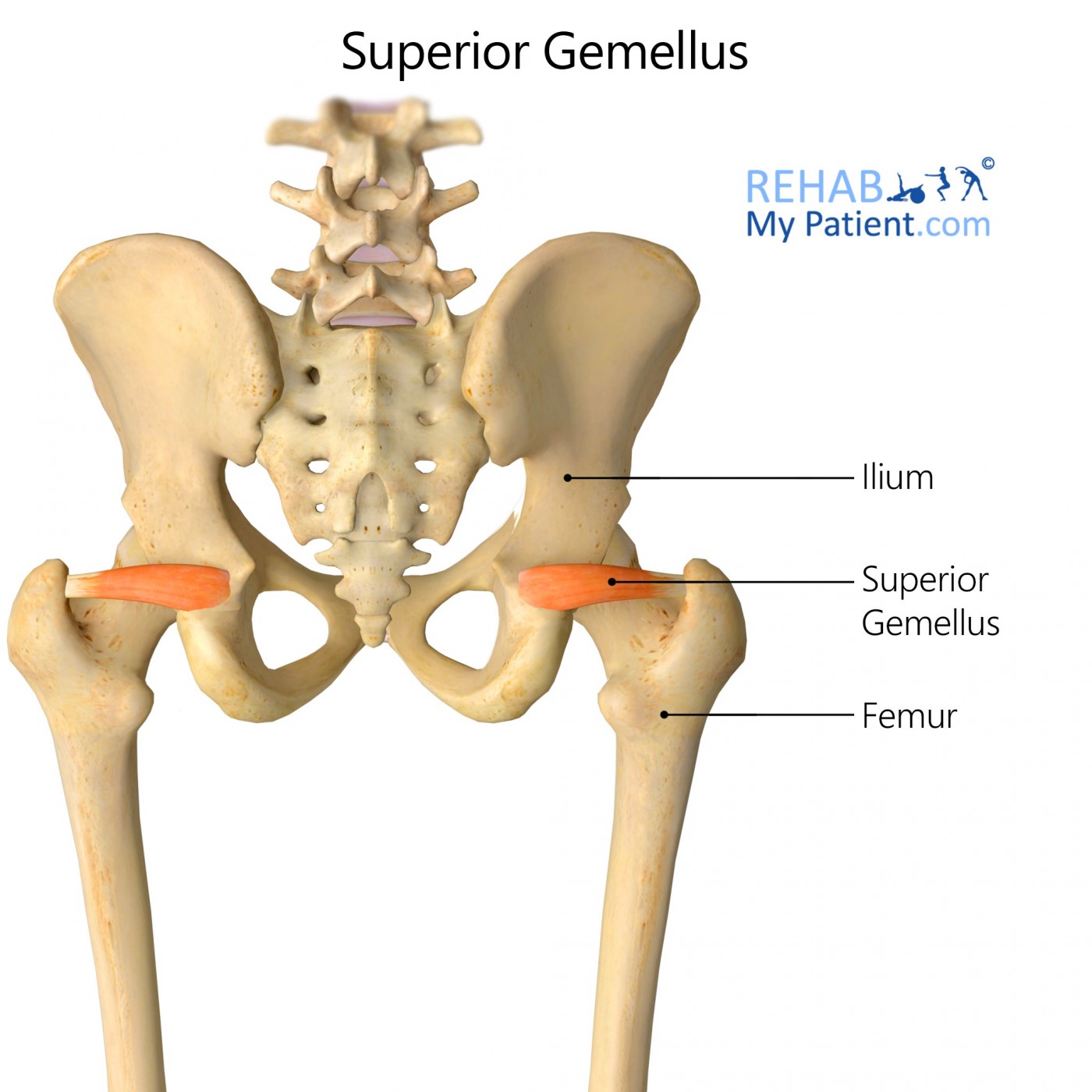
General information
The gemelli are two minuscule fasciculi. As accessories to the tendon from the obturator interbus, they are received into the groove from between them. The gemellus superior, which is the smaller of the two muscles, arises from the outer surface from the spine of the ischium. It blends with the upper portion of the tendon from the obturator internus, and it is inserted into the medial surface of the greater trochanter.
Literal meaning
Upper little twin.
Interesting information
If it becomes difficult to rotate the hip inward or the joints feel stiff, it may be that the external rotator muscles need to be stretched because they are too tight. Tight rotators might end up causing piriformis syndrome, which is a painful condition in where the piriformis causes the sciatic nerve to become inflamed. Sciatic pain can be felt in the hip, back and all the way down the affected side, depending on the individual. Stretching of the external rotators helps improve range of motion and increase flexibility.
Six different muscles have the primary job of rotating the hip externally. When the muscles become tight, it proves difficult to rotate the hip. Everything from the piriformis, gemellus superior, quadrates femoris, gemellus inferior, obturator internus and obturator externus are affected when an injury occurs. The deep muscles are unable to perform their normal rotation.
Origin
Dorsal surface out of the spine for the ischium.
Insertion
Joins the upper edge for the obturator internus tendon into the medial surface for the greater trochanter in the femur.
Function
Hip joint rotation laterally.
Aids in abduction of a flexed thigh.
Nerve supply
Nerve to the obturator internus L5, S1.
Blood supply
Internal iliac artery from the inferior and superior gluteal arteries
Internal pudendal artery.
Relevant research
A study was conducted to help in the diagnosis, treatment and pathogenesis in piriformis syndrome as part of a continual pain in the buttock and hip following spinal anesthesia. The 29-year-old woman came in five days after a cesarean delivery complaining of sudden pain onset in the left hip and left buttock that radiated to the posterior knee accompanied with a fever. She ended up being diagnosed with piriformis syndrome. Most of the time, back pain that radiates into the buttocks after anesthesia is often attributed to the procedure itself. Sitting for an extended period of time and bearing weight on the joint after a cesarean delivery can cause the sciatic nerves to become compressed. The authors warn that piriformis syndrome tends to be under diagnosed in obstetric patients and clinicians should be more aware of this possibility.
Vallejo MC, Mariano DJ, Kaul B, Sah N, Ramanathan S. Piriformis syndrome in a patient after cesarean section under spinal anesthesia. Reg Anesth Pain Med. 2004;29(4):364-367. doi:10.1016/j.rapm.2004.01.014
Superior gemellus exercises
Bent over lunging hip flexor stretch
To perform this stretch, kneel and step back with the left leg while bending the right knee. Bend forward and place the hands onto the floor with the elbows to the outside of the right knee. Push the left leg straight out and drop the hips while working to balance on the ball of the left foot. Repeat the same exercise on the other side. Perform 10 repetitions on both sides.
Sign Up
Sign up for your free trial now!
Get started with Rehab My Patient today and revolutionize your exercise prescription process for effective rehabilitation.
Start Your 14-Day Free Trial